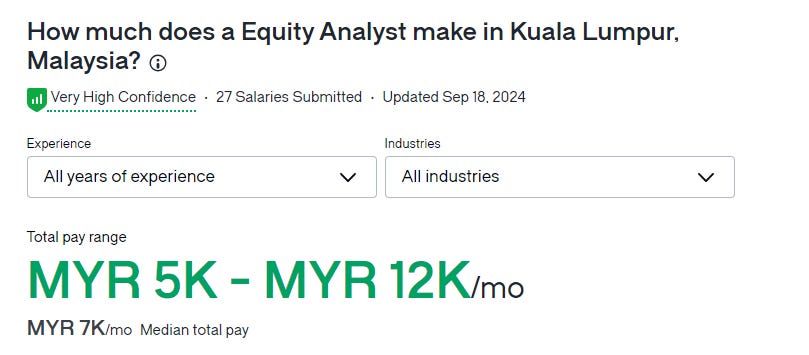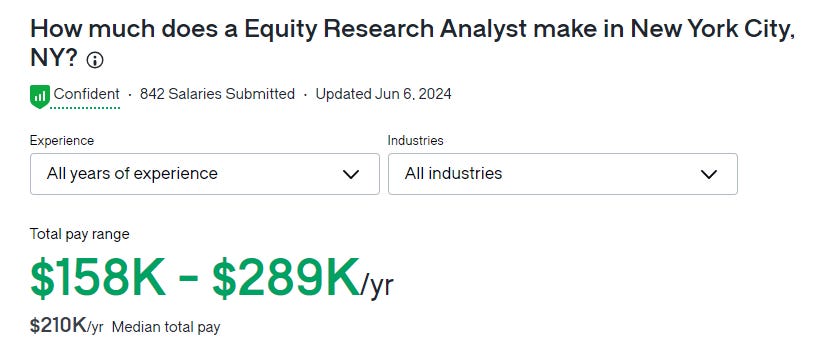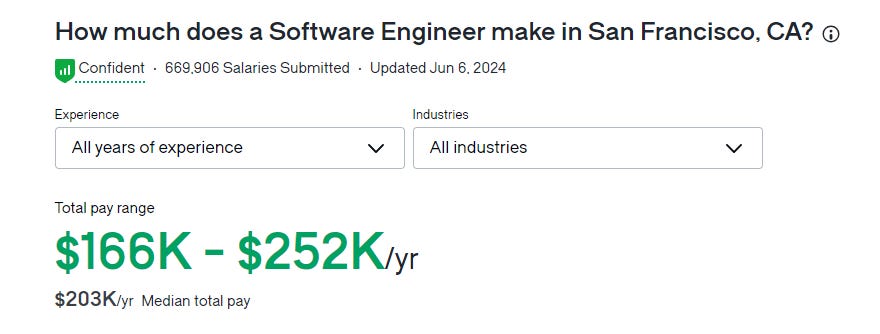The World is Flat
Magic patches of dirt won't exist for much longer
The world is flat, and the internet made it that way.
Talent from across the world can now compete with each other. Anyone who has a computer can do what anyone else with a computer can do.
If you’re still stuck in a career, be honest with yourself: How much of what you do requires your in-person presence?
I don’t mean ‘required’ as in “my boss makes me come in”.
I mean ‘required’ in the sense that your physical presence is needed for productive work that actually moves the needle.
If you’re honest with yourself, the answer is: Not much.
The average day in a white collar career involves hunching over a computer for hours on end, essentially being a disembodied brain with attached hands that can move a mouse and type on a keyboard.
If you can do it in the USA, you can do it anywhere.
Or, more realistically, someone else can do it from anywhere.
The pay disparity between different countries is completely absurd. If you look at the average annual salary for any white collar job, you can see that workers in the USA are overpaid.
This is just a fact.
Whether it’s good or bad is up to you, but the facts are the facts.
For funsies let’s look at the average salaries of equity analysts and software engineers (chosen for no reason other than they’re white collar-sounding job titles).
In Kuala Lumpur, an equity analyst makes the equivalent of $18,785.64 USD per year.
In New York City, they make $210,000 USD per year.
A software engineer in Mumbai makes $9,040.50 USD per year.
In San Francisco, people with the exact same job title make $203,000 USD per year.
We take it for granted that this is just the way it is.
Magic patches of dirt exist.
If you weren’t lucky enough to be born on one of them, you dedicate your life to navigating the insane bureaucracy required to get on one of them so you can get paid astronomically more for the exact same type of work (while working less hours).
It’s absurd, an extreme market inefficiency that shouldn’t exist.
That’s why everyone from small-time WiFi money bros to Fortune 500 companies are outsourcing their labor.
If someone in the Philippines, Mexico, or India can do the exact same job at a fraction of the cost of an American, you would be insane to not take advantage.
But as with all forms of arbitrage, the gap will eventually close.
Inefficiencies can’t exist indefinitely.
Are American workers really earning their high wages?
Obviously, units of labor aren’t 100% interchangeable the way the things like gold or lumber are.
It’s not a commodity.
There are intangible differences in things like education, culture, training, and language ability than can serve as semi-logical reasons why workers in one country might be more valuable than workers in another.
But does the USA really have an advantage in any of those factors?
Education: Have you seen the quality of the most recent crop of college graduates? Ability to do basic math and comprehend the written word is going down FAST.
Culture: The USA has been so rich for so long that we’ve finally arrived at the point where people feel entitled to prosperity and start to wonder: Why should I have to do anything at all?
Taking unnecessary time off (‘mental health days’), insane requests for raises w/o doing anything to earn them, confrontational behavior with employers, complaining, general slacking off. All are very common in the USA.
The US workforce has a high rate of mental illness. Depression and anxiety are probably more common than not. Dangerous Cluster B personality disorders are on the rise.
Violence in the workplace is common. The United States is the only country on the planet where you legitimately have to worry about being shot by disgruntled employees.
Compare this to countries like the Philippines where the people are friendly, 6-day workweeks are the norm, and they don’t complain because they’re grateful for the opportunity instead of resentful at the fact that they have to do anything at all.
Also, they cost less.
Which one would you rather hire?
Language ability: The USA is lucky because it’s an English-speaking country during a time in history when English is the lingua franca of the entire world.
But most people use that as an excuse to not learn any language at all. The USA is the most monolingual country in the world.
Workers in other countries can speak English too….and many other languages.
It’s not necessary for all jobs, but in a globalized world the American myopic refusal to learn other languages is only going to hold its workforce back.
And just because Americans speak English and only English is no guarantee that they’ll be good at it.
As mentioned earlier, reading comprehension is at an all time low.
Most people straight up can’t write at all. They use social media-speak when writing in situations where it’s wildly inappropriate.
This is one of the reasons why call centers are mostly located in the Philippines. Filipinos are by and large polyglots who can speak 3+ languages, and at the higher end they can speak English with an American accent better than most Americans.
And they cost less.
Do I even need to ask you which one you’d rather hire?
Training/skills: I haven’t seen much evidence to indicate that Americans are more skilled than people anywhere else.
At the higher end?
Definitely.
The most skilled Americans are VERY highly skilled.
But by definition, most people aren’t at the high end.
Most people cluster around the mean.
An average American worker isn’t any better than an average worker anywhere else.
Even if they are slightly higher skilled, when you factor in the issues I described above, combined with the astronomical wages you have to pay them, it just doesn’t make sense to hire Americans.
I’m aware that there’s more than just the quality of the workforce that factors into the wages they receive.
Relative strength/weakness of different currencies, big picture geopolitical and economic issues, geography, laws, etc. all play a role.
But in the long run the gravitational pull of the Mean can’t be resisted.
Wages in rich countries will trend downwards and wages in poor countries will trend upwards.
It won’t happen quickly and it won’t happen evenly, but it will happen.
No politician or X app personality can do anything to stop it.
How to save yourself
Widespread prosperity isn’t a given and it isn’t normal.
The default economic arrangement is a small number of rich people at the top of the pyramid and a gigantic teeming horde of poor people at the bottom, with few to none in the middle.
That’s the way the world always has been and always will be.
Due to a fluke of history, widespread prosperity existed in a few locations in the 20th century.
That fluke is in the process of correcting itself as we speak.
You can’t rely on wages earned from employment to sustain your standard of living. Building a successful business is the only way to survive.
The good thing is that this is the easiest time in history to make money.
You have to pull yourself up to the top of the pyramid instead of coasting in the middle, because the middle won’t exist for much longer.
It’s either the bottom of the pyramid or the top.
You can either be a business owner Sovereign Individual yourself or you can be one of the interchangeable laborers hoping/praying that you get a job working for one.
Which will you choose?







All good points. I also have the experience of a client leaving, twice, and using overseas developers, only to come back asking me to bail him out.
I tend to overdeliver, which is not ideal, frankly. But the developers people find overseas are sometimes prone to promise a lot and not follow through. Not all, but it's common.
So that's my edge so far, though it's painful to work myself into the ground all the time.
hey, your advice isn't wrong but I subscribe to this substack for your SEO and Reddit advice - I own an E-commerce company moving 8 figures/year top line so this kind of stuff doen't apply to me at all :)